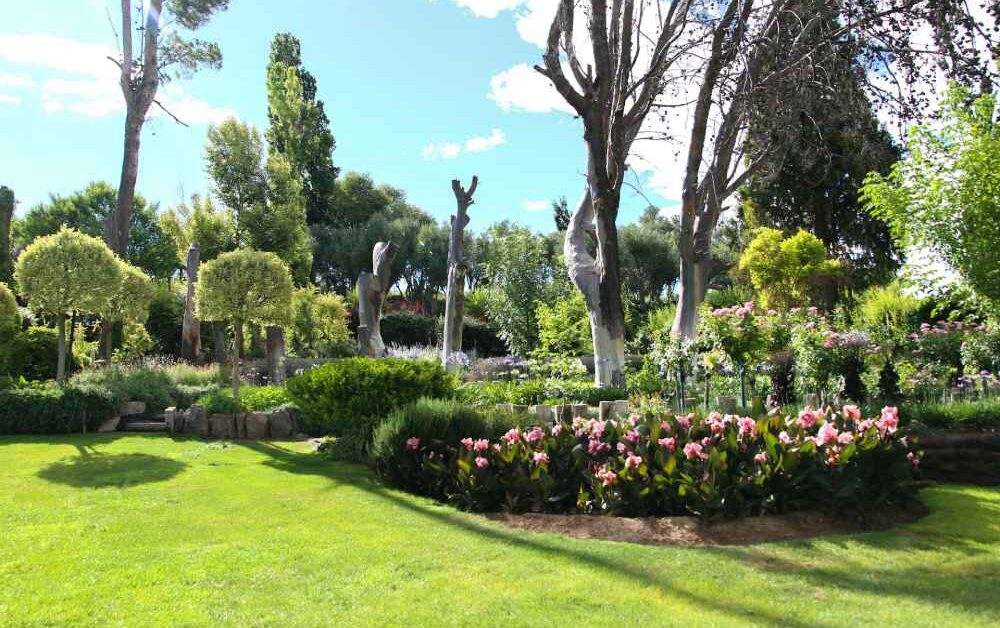When it comes to lawn care, one often overlooked yet vital element is mulch application. However, professional mulching services know this simple step can significantly affect your garden’s health and aesthetics.
Offering a slew of benefits, mulching does much more than just suppress weeds—it’s a moisture-retaining shield for your soil, an insulator against extreme temperatures, and a furnace of fertility that can transform a mediocre lawn into a vigorous, life-sustaining oasis. Regular mulching can differentiate between a thirsty, struggling garden and vibrant, thriving plant life.
Contents
- 1 Types of Mulch and Their Best Use Cases
- 2 Proper Mulching Techniques for Optimum Results
- 3 The Ecological Impact of Mulching: A Sustainable Practice
- 4 Mulching and Soil Health: A Scientific Perspective
- 5 Long-Term Benefits of Mulching for Your Lawn and Garden
- 6 Conclusion: Embracing Mulching in Your Gardening Routine
Types of Mulch and Their Best Use Cases
Just as the right tools are crucial for any job, selecting the proper mulch type is fundamental to managing your lawn’s health. Organic mulches, decomposing over time, include options such as shredded bark, straw, and compost, releasing valuable nutrients into the soil.
Wood chips are especially beneficial for trees and shrubs, providing a natural forest floor environment that lends itself to root growth. Conversely, inorganic mulches like stones or landscape fabric offer less nutrient supply but excel at providing a long-term, low-maintenance solution, particularly apt for xeriscaping or areas where water conservation is essential.
The mulch selection process should be tailored to your garden’s specific conditions, taking into account the local climate, plant types, and your long-term landscaping goals.
Proper Mulching Techniques for Optimum Results
There’s an art to mulching; it’s not just about scattering mulch over your soil. Proper technique is pivotal in ensuring your plants reap the maximum benefits. A uniform layer of two to four inches is generally recommended, but one must be mindful of not smothering plant bases or tree trunks, as this can encourage rot.
Furthermore, maintaining a small gap between the mulch and plant stems is crucial to avoid moisture issues that can lead to fungal diseases. The strategic timing of your mulching, namely in the growing seasons of spring or just before winter hits, will shield seedlings, retain warmth in the soil, and set the stage for reducing weed competition right from the get-go.
The Ecological Impact of Mulching: A Sustainable Practice
A green thumb can be synonymous with an eco-friendly approach when mulching practices are integrated into lawn care routines. Mulching is highly esteemed in sustainable gardening for its capacity to minimize outdoor water use, allowing the soil to retain moisture more efficiently and for extended periods.
It also means less reliance on chemical fertilizers, as organic mulches naturally break down and enrich the soil. The act of mulching emulates nature’s process of fallen leaves covering the forest floor, promoting a self-nourishing environment where a diverse community of organisms can thrive. This biological activity strategically builds soil structure and fertility, enhancing the ecosystem’s resilience.
Mulching and Soil Health: A Scientific Perspective
The science behind mulching reveals its profound influence on the very foundation of garden health: the soil. A blend of organic materials spread over the earth acts like a slow-release fertilizer, improving soil quality by increasing beneficial microbial populations. These microbes play a role in organic matter breakdown; their movements help to aerate the soil, optimizing root growth and water penetration.
The advancement in soil health with regular mulching is substantial—leading soil scientists agree that increased organic matter in the soil, facilitated by mulching, results in better water retention, enhanced nutrient availability, and disease resistance, ultimately culminating in a garden capable of sustaining robust plant life.
Long-Term Benefits of Mulching for Your Lawn and Garden
The skill of mulching stretches beyond the immediate season, casting a beneficial shadow over the future of your garden. Persisting in mulching practices year after year can introduce a litany of long-term rewards, including significantly improved soil quality and structure.
Research studies have highlighted that mulching can help keep soil temperatures even, preventing stress from fluctuating weather patterns and leading to healthier and more resilient plant life. Moreover, this helps prevent erosion, a concern for many gardeners, especially in sloped areas. Standing the test of time, mulching is an investment in the future flourishing of your outdoor space.
Conclusion: Embracing Mulching in Your Gardening Routine
Mulching is not simply a task to check off your gardening to-do list; it’s a conscientious approach to nurturing your garden, acknowledging the powerful relationship between the ecosystem and plant health.
In an era where sustainability is no longer a buzzword but a necessity, embracing mulching and its multiple long-lasting benefits reinforces the commitment to responsible stewardship of the land we cultivate. For the garden enthusiast who values sustainability just as much as beauty, including mulching into your gardening routine expresses love for your plants and the planet they grow on.

